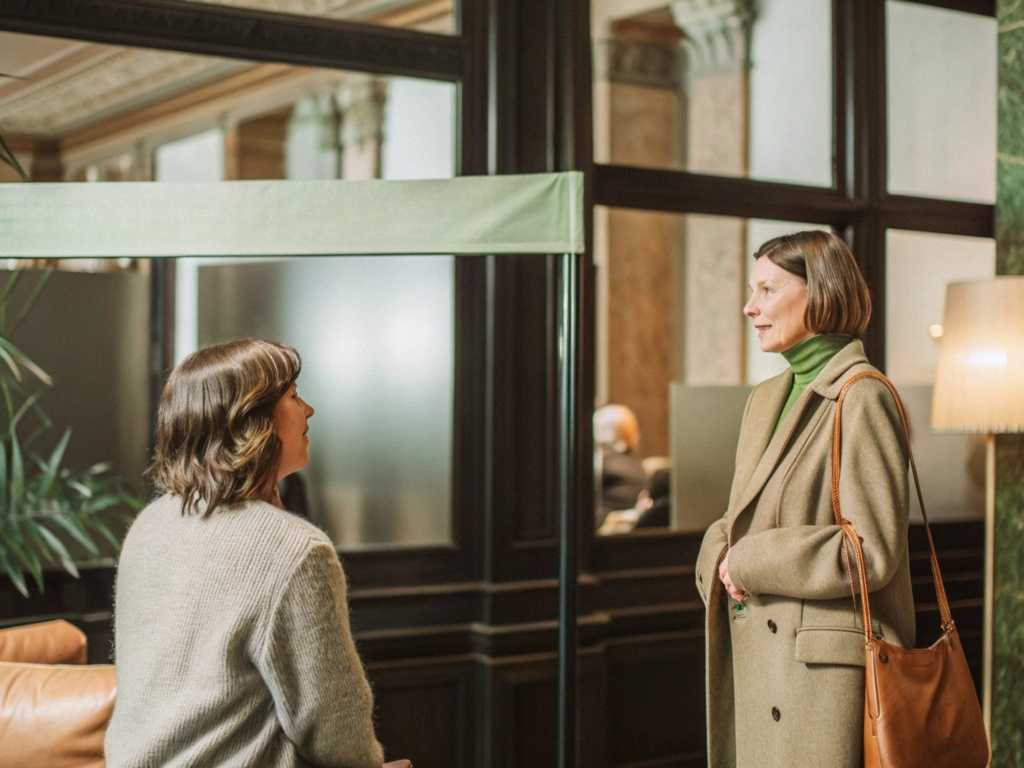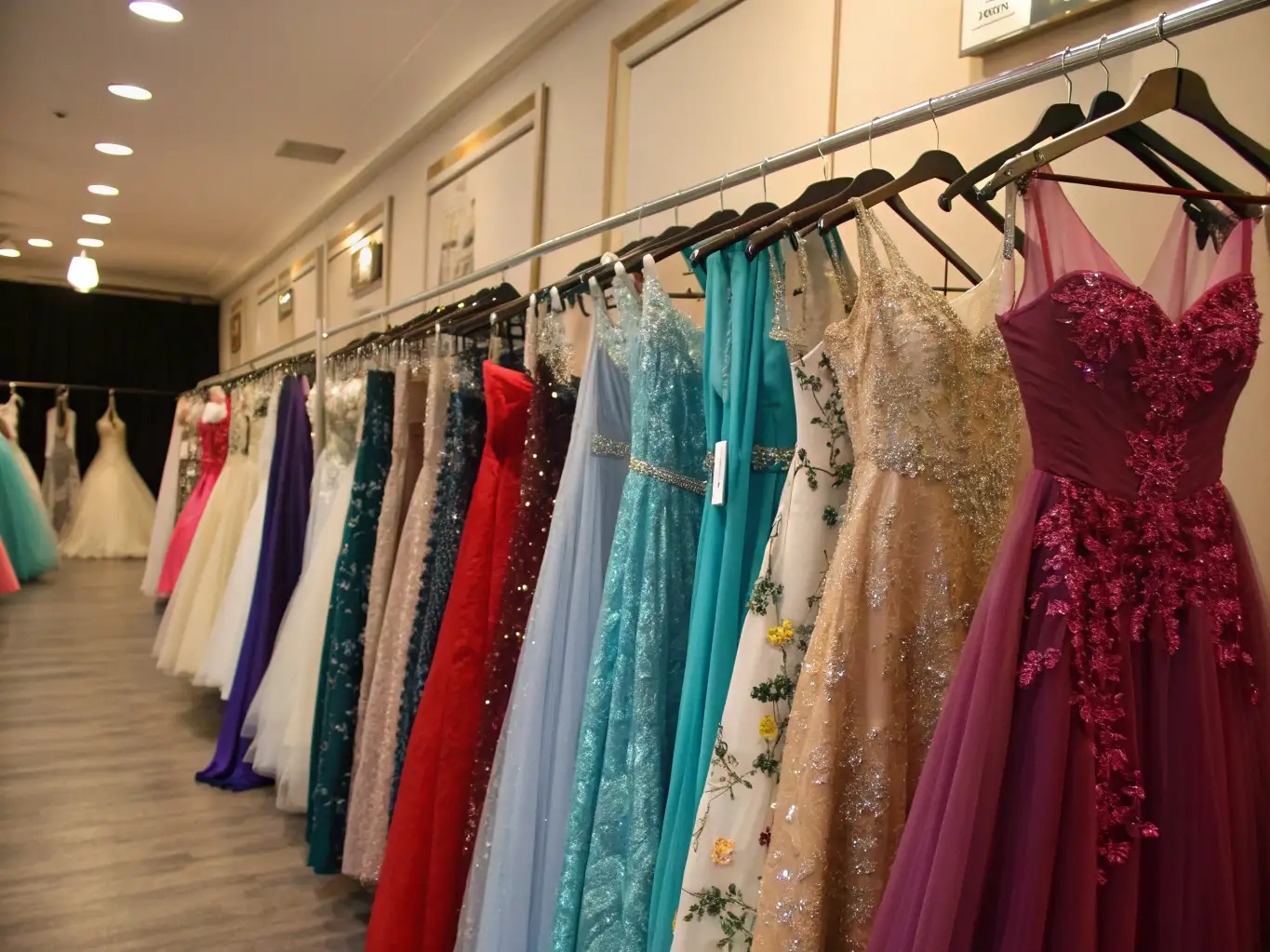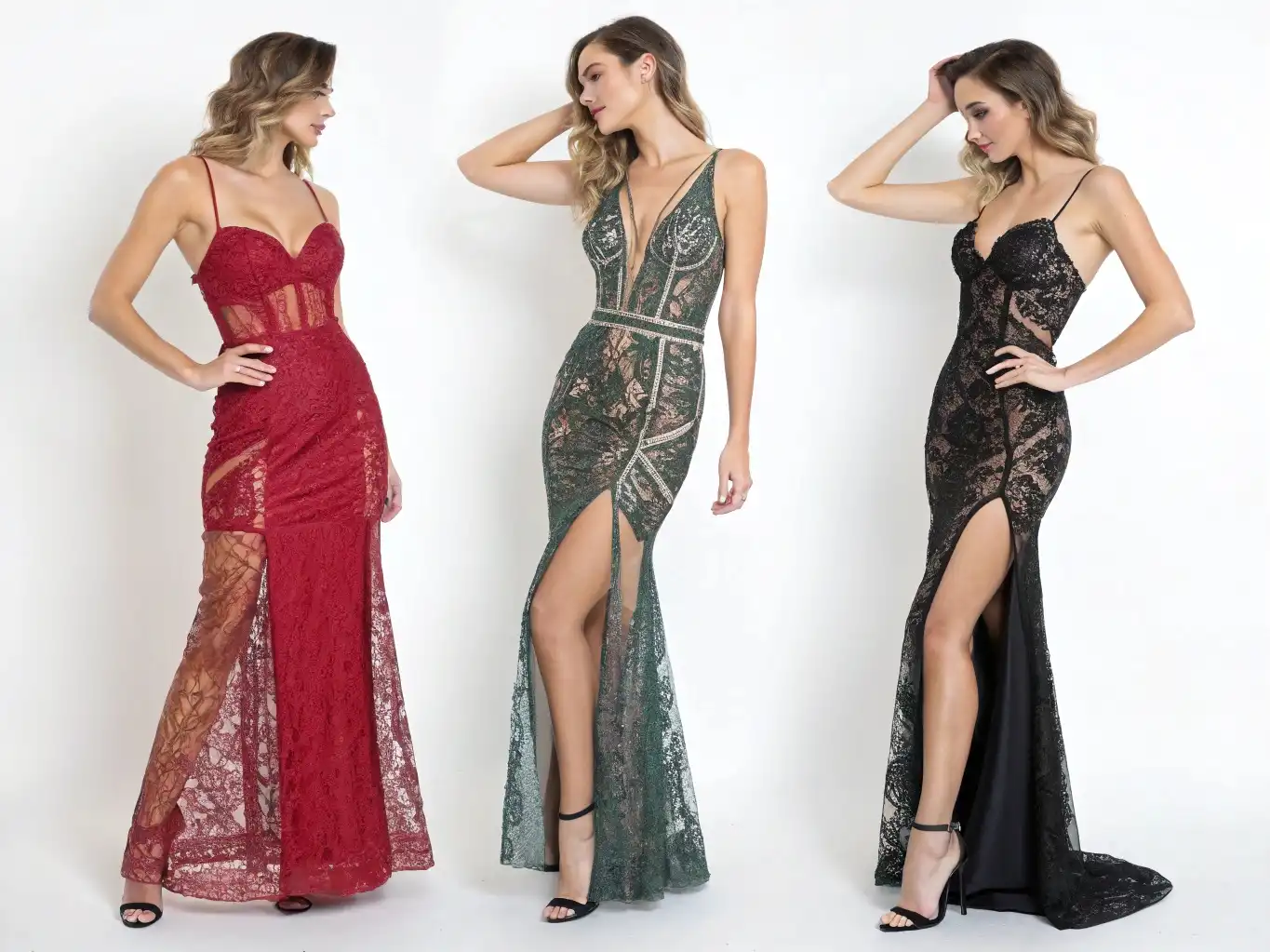Buying designer clothes wholesale1 can significantly boost profitability for retailers and boutiques, but navigating the luxury fashion wholesale market involves complexities, strict distribution channels, and legal considerations. Understanding how designer wholesale truly operates is crucial for sourcing authentic, high-quality products legally and profitably.
Yes, designer clothes can be purchased wholesale, typically through authorized distributors2, licensed brand partnerships, or specialized wholesale platforms. However, many luxury brands restrict wholesale to maintain exclusivity, and buying from unauthorized sources risks legal and ethical issues.
Based on my extensive experience working closely with dress suppliers and luxury fashion resellers, here’s a detailed analysis to help you source designer clothes wholesale effectively and responsibly.
How Wholesale Works in the Designer Clothing Industry
Designer clothing wholesale involves specialized distribution channels that differ significantly from mainstream wholesale practices.
Luxury brands usually control wholesale distribution tightly through authorized channels or direct-to-consumer (DTC) sales, distinguishing true wholesale from closeouts or liquidations.
 Fashionable Winter Conversation
Fashionable Winter Conversation
Do luxury brands offer wholesale channels—or only direct-to-consumer sales?
Luxury brands traditionally offer limited wholesale channels, selling primarily through exclusive retail partnerships or high-end department stores. Increasingly, however, many premium brands are shifting towards direct-to-consumer channels to retain control over pricing, branding, and customer experience.
Luxury Wholesale vs. Direct-to-Consumer (DTC)
| Distribution Model | Availability | Pros | Cons |
|---|---|---|---|
| Wholesale | Limited | Broader distribution, retailer reach | Less control, potential price dilution |
| Direct-to-Consumer | Growing | Brand control, higher margins | Higher costs, limited market reach |
What’s the difference between true designer wholesale and closeout liquidation?
True designer wholesale involves current-season or upcoming collections purchased directly from brands or licensed distributors. Closeout liquidation refers to end-of-season or surplus stock sold at significant discounts—typically with limited style choices and sizes.
Wholesale vs. Closeout Liquidation
| Aspect | True Wholesale | Closeout Liquidation |
|---|---|---|
| Inventory Type | New-season, full size run | Past-season, limited selection |
| Pricing | Wholesale pricing (50%–70% of retail) | Deep discounts (20%–40% of retail) |
| Brand Relationship | Direct authorized partnership | Often indirect or clearance-based |
Where to Find Legitimate Wholesale Dress Suppliers for Designer Goods
Identifying legitimate wholesale suppliers for designer dresses involves navigating carefully vetted distribution channels and platforms.
Authorized brand distributors, licensed resellers, and specialized wholesale marketplaces like Joor or FashionGo are legitimate sources for designer fashion wholesale.
Are authorized distributors or brand licensees the only legal wholesale sources?
Generally, yes. Authorized distributors and licensed brand representatives provide official, legally compliant channels. Buying from unauthorized sources can lead to legal risks, including potential trademark violations and counterfeit issues.
Legitimate Wholesale Sources for Designer Clothes
| Legal Source | Legitimacy Level | Advantages | Limitations |
|---|---|---|---|
| Authorized Distributors | High | Authentic products, legal protection | Strict agreements, high MOQ |
| Brand Licensees | High | Official products, verified channels | Limited brand access |
Can you find high-end fashion wholesale on platforms like Joor or FashionGo?
Absolutely. Online wholesale platforms like Joor and FashionGo provide verified marketplaces connecting retailers to authentic designer and contemporary fashion brands. These platforms streamline wholesale sourcing while maintaining brand legitimacy and protection.
Popular Wholesale Platforms for Designer Clothes
| Platform | Designer Level | Verification Process | Typical MOQ |
|---|---|---|---|
| Joor | High-end, luxury | Strict brand verification | Moderate to high |
| FashionGo | Mid-tier, contemporary | Brand verification | Lower MOQ, wider variety |
Legal & Ethical Considerations in Buying Designer Clothes Wholesale
Buying designer wholesale carries legal and ethical implications, especially concerning brand trademarks and distribution rights.
Unauthorized resale can expose retailers to legal risks involving trademark infringement or counterfeit goods. Understanding grey markets versus counterfeit goods helps avoid significant legal and brand reputation risks.
Is reselling branded designer goods without authorization a trademark risk?
Yes. Unauthorized reselling—particularly if products are sourced outside official channels—can lead to trademark infringement lawsuits. Brands actively enforce their trademarks to protect exclusivity, quality, and pricing control.
Trademark Risks in Designer Wholesale
| Activity | Legal Risk | Recommended Approach |
|---|---|---|
| Authorized Reselling | Low | Buy from official, verified channels |
| Unauthorized Reselling | High | Avoid grey market, verify authenticity |
How do grey market goods differ from counterfeit or parallel imports?
- Grey market goods: Authentic products sourced from unauthorized channels, often bypassing official distribution controls.
- Parallel imports: Authentic products imported without brand authorization, typically legal but restricted by distribution agreements.
- Counterfeit goods: Illegal replicas designed to mislead consumers, violating intellectual property laws.
Grey Market vs. Counterfeit Goods
| Type | Authenticity | Legality | Risks |
|---|---|---|---|
| Grey Market | Authentic | Questionable, often legal | Trademark disputes, warranty issues |
| Parallel Imports | Authentic | Legal but limited | Brand relationship risks |
| Counterfeit | Fake | Illegal | Serious legal risks, brand damage |
Tips for Retailers and Boutiques Sourcing Designer-Style Dresses
Retailers and boutiques seeking profitable alternatives to official designer wholesale can consider private-label options3 or boutique-level contemporary fashion.
Exploring private-label, boutique-level designs, or contemporary fashion brands can be profitable alternatives, offering flexibility, lower MOQs, and fewer legal complexities compared to strict designer wholesale.
Should you consider private-label or boutique-level fashion as alternatives?
Private-label manufacturing and boutique-level brands offer attractive alternatives, providing similar style appeal and quality without legal complexities. They allow greater margin flexibility, lower MOQs, and more unique branding opportunities.
Private-Label & Boutique-Level Alternatives
| Option | Margin Potential | Customization | Legal Complexity | Suitability |
|---|---|---|---|---|
| Private Label | High | Full | Low | Flexible branding, scalable growth |
| Boutique-Level | Moderate–High | Moderate | Low | Unique offerings, niche markets |
How do MOQ, exclusivity terms, and pricing structures vary by tier?
MOQ, exclusivity, and pricing structures vary significantly across wholesale tiers:
- Luxury Wholesale: High MOQs, strict exclusivity terms, premium pricing.
- Contemporary Wholesale: Moderate MOQs, flexible exclusivity, competitive pricing.
- Private Label: Lower MOQs, high customization, cost-efficient pricing.
Wholesale Tiers & Cost Structure
| Tier | MOQ | Exclusivity Terms | Pricing & Margin | Typical Retailers |
|---|---|---|---|---|
| Luxury Wholesale | High | Strict | High | Luxury boutiques, high-end stores |
| Contemporary Brands | Moderate | Flexible | Moderate–High | Mid-tier boutiques, specialty retailers |
| Private Label | Low–Moderate | High flexibility | High | Small boutiques, independent retailers |
Conclusion
Purchasing designer clothes wholesale is indeed possible but involves careful navigation of authorized channels, legal considerations, and distribution complexities. Luxury brands typically limit wholesale opportunities to maintain exclusivity, pushing retailers toward licensed distributors, brand-authorized channels, or specialized platforms like Joor. Retailers seeking high profitability without complex legal issues may consider private-label or contemporary boutique-level fashion. Understanding MOQs, exclusivity, pricing structures, and clearly distinguishing between legitimate and questionable sourcing channels ensures successful, ethical, and profitable wholesale sourcing in the designer apparel market.
-
Explore this link to understand how buying designer clothes wholesale can enhance your retail profitability and sourcing strategies. ↩
-
Learn about authorized distributors to ensure you source authentic designer clothing legally and avoid potential risks. ↩
-
Discover the benefits of private-label options as a flexible and profitable alternative to traditional designer wholesale sourcing. ↩





